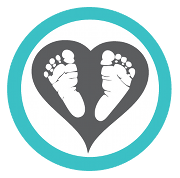 |
| http://www.msnbc.msn.com/id/42128739/ns/world_news-asiapacific/ |
US Breastfeeding Committee
American Academy of Pediatrics
Survival Blog
Please get a 72 hour kit for emergency evacuation purposes and survival for a few days if necessary! Here is a PDF checklist from about.com
Summary
- Know that a disaster could occur in your area. Learn evacuation routes and meeting places. Check out http://www.ready.gov
- Plan (on paper) the steps you should take in an emergency and share with family members. Not talking about them can be critical. If you never talk for fear of scaring them, you won't be in the best possible place for safety and reunion. Know where you would go if you can't go home and have an "emergency check-in" contact person. It's good to have someone local and someone out of state in case local lines are jammed but you can get outside. This happened in hurricane Katrina.
- Pack emergency supplies to meet your basic needs for three days in case you have to "grab and go" in an evacuation. Include water (plastic soda bottles rinsed and stored with water work well and can be toted in backpacks), food, baby care items, flashlight/batteries, first-aid kit.
- ID for yourself and children (birth certificates, SS cards, immigration papers, school records)
- Funds that are accessible - cash (not in huge bills), traveler's checks, credit cards and checkbook.
- Keys to house, car, safety deposit box, etc.
- Calling card, cell phone and battery (may or may not be usable). Don't forget the number of the emergency contact person.
- Medications needed regularly
More safety information about food and water can be found here: http://www.bt.cdc.gov/disasters/foodwater























No comments:
Post a Comment
This blog only reviews comments before posting to avoid hijacking. We will respond to comments Mon-Thurs but we are closed Fri-Sun and legal holidays.